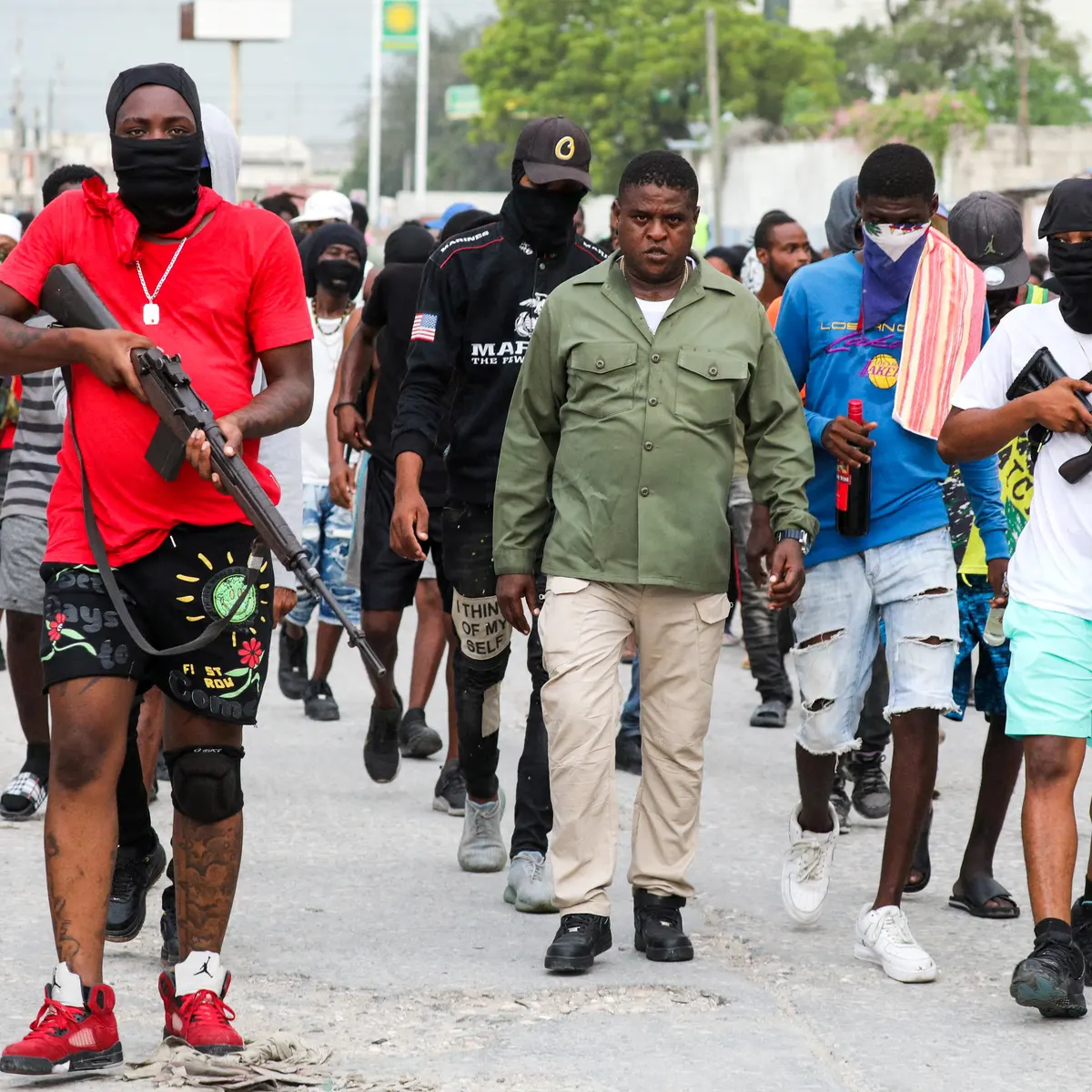NEWS
Escalating Violence in Haiti’s Capital Amid Prime Minister’s Mission to Kenya for Security Talks

The streets of Port-au-Prince were on Thursday engulfed in chaos as violence erupted, marked by heavy gunfire and impromptu barricades. A gang leader claimed responsibility, saying the outbreak was a protest against Haitian authorities.
Simultaneously, Prime Minister Ariel Henry arrived in Kenya for discussions concerning the delayed deployment of Kenyan troops to Haiti.
Amid the turmoil, special police units were dispatched across the city to quell the unrest.
Former policeman turned gang leader, Jimmy Cherizier, otherwise known as Barbecue, declared in a circulated video that the ongoing battle aimed not only to oust the Ariel government, but also to overhaul the entire system.
Henry, who assumed office with international support following the assassination of President Jovenel Moïse in 2021, initially pledged to resign by early February, contingent upon re-establishing security for fair elections.
The Caribbean Community (CARICOM) on Thursday also announced Henry’s commitment to organising general elections by 31 August next year, following a regional summit in Guyana. This deadline marks the third such announcement, with previous pledges made in 2022 and 2023.
CARICOM further declared intentions to dispatch an assessment team by 31 March to evaluate electoral requirements and assist in establishing relevant institutions.
Since Moïse’s assassination, Haiti has been ravaged by rampant gang violence, with the U.N. estimating nearly 5,000 deaths and 300,000 displacements last year alone.
Henry clarified that his trip to Kenya was at the invitation of President William Ruto, and is aimed at finalising agreements for the deployment of 1,000 Kenyan police officers to Haiti.
Although Kenya had in October agreed to lead a U.N.-authorised international police force to Haiti, the ambitious plan came a cropper when the High Court in January pronounced it unconstitutional, citing the National Security Council’s lack of authority to deploy Kenya Police abroad without a reciprocal agreement with the host country.


Leave a Reply
You must be logged in to post a comment.